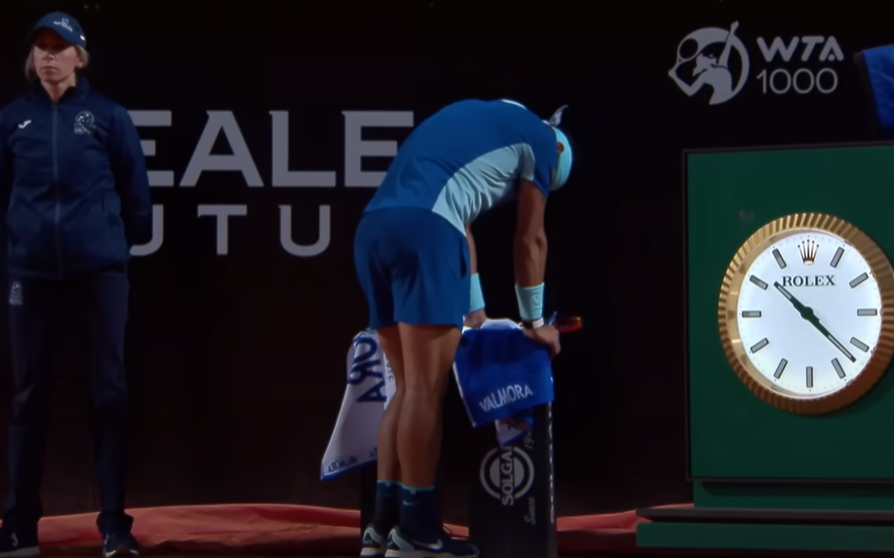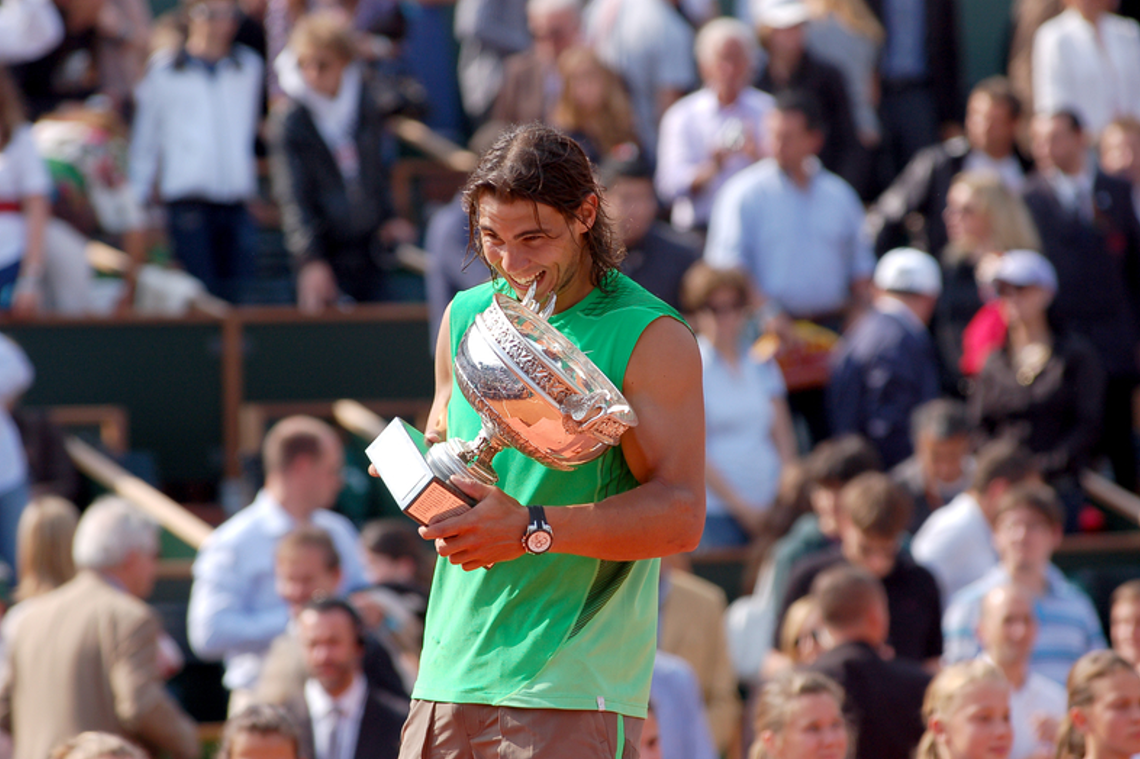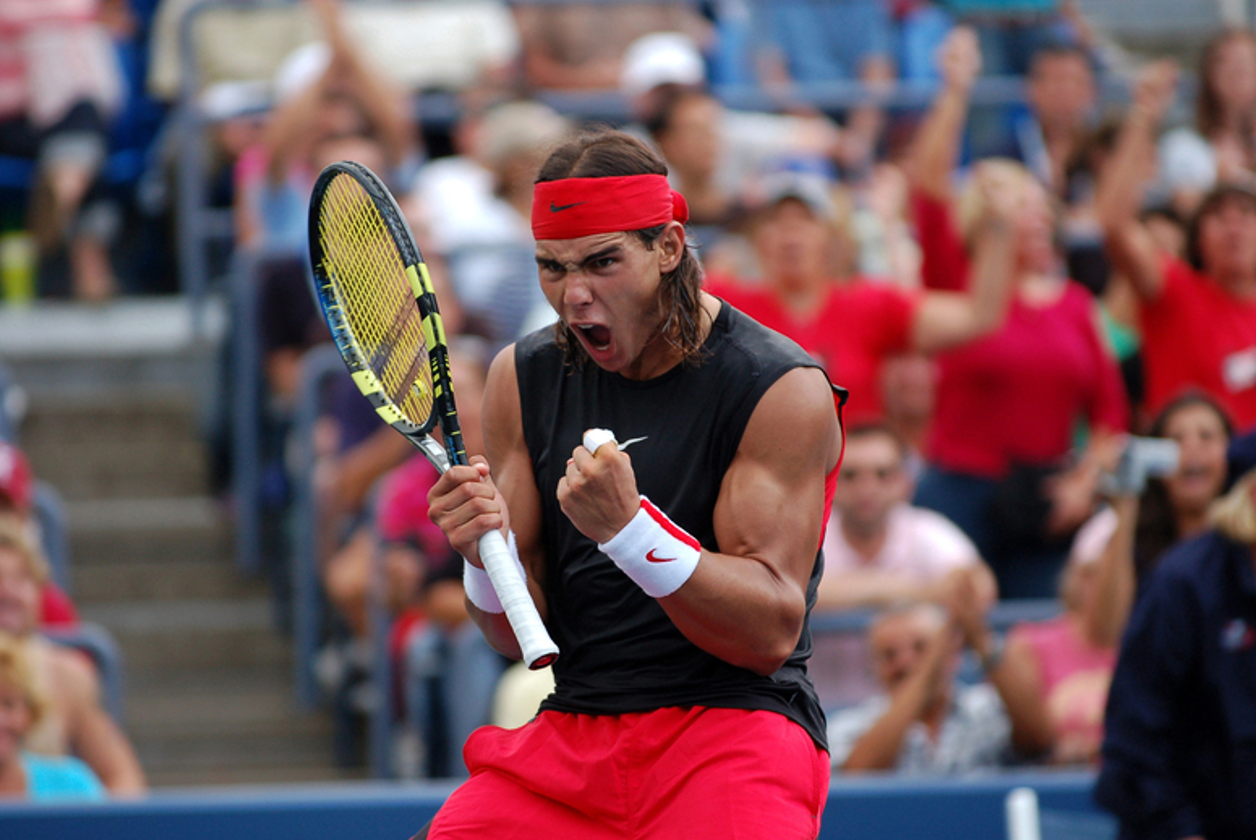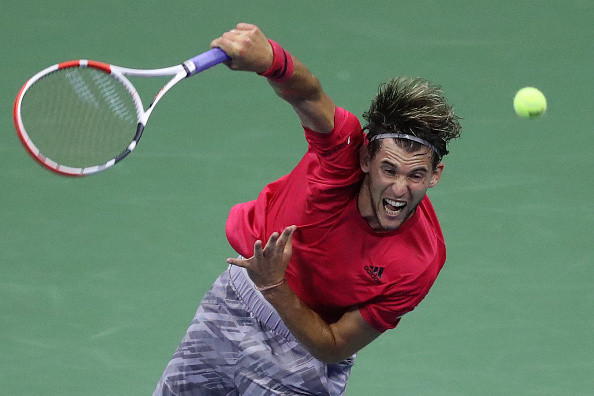Mental Toughness, Tennis
Welcome and thanks for visiting...

Rafael Nadal: The King of Resilience and Determination

"He played every point like he was broke," said Jimmy Connors of the great Rafael Nadal. It’s a simple, powerful statement that encapsulates the essence of a player who, though far from broke in any material sense, played as though he had nothing to lose. Throughout his legendary career, Nadal refused to allow his success—or that of his family—to breed complacency. Every point, every match, every tournament was approached with the same ferocity, humility, and drive, traits nurtured by his upbringing but ultimately came from within.
Nadal’s internal fire and relentless determination could not be taught. There are some aspects of greatness that no coach can impart, and Rafael Nadal is certainly one of them.
Overcoming Obstacles, One at a Time

Nadal's career was nothing short of a rollercoaster ride. Time and again, injuries threatened to end his journey, but like a phoenix rising from the ashes, Nadal always found a way to bounce back, often stronger than before. Throughout his career, he faced chronic knee issues, wrist injuries, and back pain, to name just a few. Pundits often declared him "done," comparing his situation to a fried egg at Denny's—finished, overcooked, and served.
But Nadal was never one to accept that fate. Each time, he defied the odds, taking his physical setbacks in stride and turning them into opportunities for growth. In a sport where injury can spell the end of a career, Nadal redefined resilience, bouncing back to play and win. And he did it on the biggest stage, time and time again.
The Eternal Flame of Humility
In a world where champions are often glorified and placed on pedestals, Nadal always managed to stay grounded. Despite his overwhelming success, his humility remained as much a part of his persona as his wicked topspin forehand. Unlike many of his peers, Nadal never indulged in the idea of entitlement. He knew that every victory had to be earned, no matter how many trophies filled his cabinet.
This humility was one of his greatest strengths. It’s easy for an athlete of his stature to become consumed by the hype surrounding his success. Yet Nadal maintained the mindset that he was constantly learning and constantly improving. His attitude was that of a hungry competitor, driven not by the need for recognition but by the internal desire to be the best version of himself on the court.
A Right-Handed Lefty: Uniqueness in Every Stroke
Nadal is right-handed in everyday life, but on the tennis court, he transformed into a lefty—an unusual decision made early in his training by his uncle and coach, Toni Nadal. This unorthodox move paid off spectacularly. The left-handed topspin that Nadal generated became one of the most feared weapons in tennis. His opponents struggled to handle the vicious spin, especially on the clay courts of Roland Garros, where Nadal dominated in an unprecedented manner.
Winning 14 titles at Roland Garros alone is an achievement so mind-boggling that it may never be surpassed. His mastery of the clay courts earned him the title of "King of Clay," and those 14 French Open victories stand as a testament to his unmatched work ethic, resilience, and sheer willpower. Who wins 14 titles in one Grand Slam? Rafa, that's who.
Resilience: The Key to Nadal’s Success
Nadal's career wasn't just about talent; it was about his unbreakable spirit. Tennis, like life, is full of uncertainties, and resilience is often what separates the good from the great. For Nadal, resilience wasn't just a quality—it was his core. The ability to rise above physical and mental challenges is what made Nadal an enduring force in tennis, even when his body seemed to betray him.
Every time he stepped onto the court, he was ready for battle. His matches were rarely easy; they were grueling tests of endurance. His famous 2008 Wimbledon final against Roger Federer, often considered the greatest tennis match of all time, is the perfect illustration of his resilience. Playing over five hours, Nadal’s mental toughness shone through as he outlasted Federer in the fading daylight, capturing his first Wimbledon title in one of the most dramatic finishes the sport has ever seen.
This resilience was not just limited to his performance in matches. Off the court, Nadal faced a constant battle to keep himself in peak condition, adjusting his game and training routines to ensure his longevity in the sport. At times, he had to pull back from tournaments, resting his injuries, but he always returned with renewed energy.
Nadal’s Internal Ferocity: The Mindset of a Champion
One of the defining aspects of Nadal’s game is his mental ferocity. It is this quality that pushed him to continue, even when everything seemed stacked against him. You could see it in every point he played—he refused to give up. Whether he was up two sets or facing match point, Nadal’s mindset was the same: relentless determination to keep fighting.
This mindset wasn’t just about grit—it was about strategy and intelligence. Nadal often adapted his game mid-match, finding ways to exploit his opponent's weaknesses while masking his own physical limitations. He didn’t just play with his racket; he played with his mind, outthinking his opponents as much as he outplayed them.
Tennis, for Nadal, was as much about problem-solving as it was about power and precision. His mental toughness allowed him to overcome deficits, adapt to changing conditions, and ultimately emerge victorious even when the odds were against him.
22 Grand Slams: A Legacy of Greatness

Nadal's ability to accumulate 22 Grand Slam titles is a feat that speaks for itself. His collection includes 14 French Open titles, 2 Wimbledon titles, 4 U.S. Open victories, and 2 Australian Open crowns. His versatility and tenacity across different surfaces—clay, grass, and hard courts—place him in the upper echelons of tennis history.
But it’s not just the numbers that define Nadal’s legacy. It’s the way he won, with heart, passion, and an unwavering commitment to the sport. His rivalry with Roger Federer was one for the ages, yet there was always mutual respect between the two champions. Nadal’s ability to maintain that respect while fiercely competing at the highest level is a testament to his character both as an athlete and as a human being.
The Unteachable Spirit of Nadal

As much as coaches have shaped his journey, there are some things that you just can’t coach, and being Rafa is one of them. His combination of resilience, humility, and ferocity made him a once-in-a-generation player. It’s not something that can be replicated in a training session or drawn up on a whiteboard. It’s the culmination of years of hard work, natural talent, and an unbreakable mindset.
Nadal's story is one of triumph against the odds. Despite the physical toll tennis took on his body, despite the countless doubters who wrote him off time and again, Nadal kept coming back. He played every point as though it were his last, every match as though the world were watching, and every tournament as though he had something to prove.
In the end, Rafael Nadal’s legacy is not just about the trophies or the records. It’s about his eternal flame, his fierce competitiveness, and his extraordinary humility. He is, and will always be, the ultimate example of what it means to play for something more than just victory—to play for the love of the game, the love of the fight, and the unteachable spirit within.
Who does that? Rafa, that's who.
On this episode of KickServeRadio.com, please enjoy what 3-time French Open Champ Mats Wilander says about the incredible, unstoppable force of nature, 14-time French Open Champion, the one and only Rafael Nadal.








